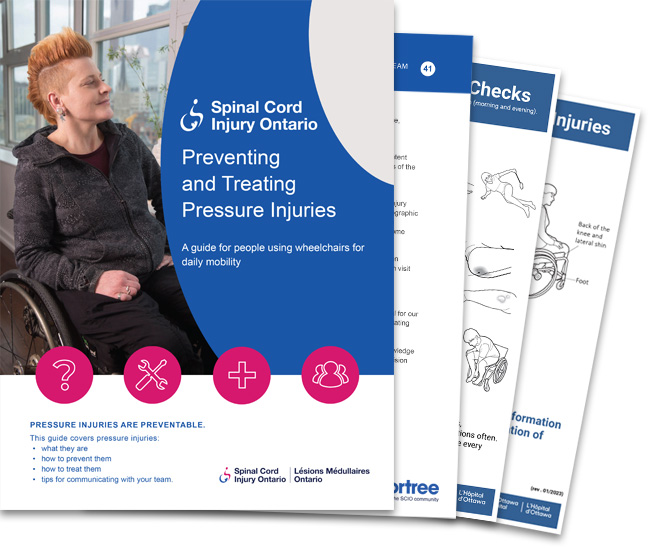Today, we talk with Al Reeves about staying healthy with spinal cord injury, and nutrition and fitness education for SCI. Al sustained a spinal cord injury at the age of 24 in 1979. In that time, he has learned a lot about taking care of his body, and the importance of having a positive outlook. In this video, Al and Oda talk about Al’s commitment to looking after his health and how by eating well, being willing to troubleshoot and adjust to issues, along with relying on the knowledge of his health care team, his peers and himself Al has stayed healthy all these years.
This video content was created as part of a project funded by a grant from the Craig H. Neilsen Foundation to Spinal Cord Injury Ontario.
It’s understandable that it’s simple to let good self-care practices, such as a healthy diet and exercise routine, go after a spinal cord injury (SCI). It can be equally simple to regain control over your health, though. Spinal cord injuries, or SCIs, can alter your life in a variety of ways, either permanently or only while you work toward a full recovery. This kind of injury’s aftereffects might range from little nerve damage to serious mobility problems. It’s crucial to look after your health and well-being as you recover and adjust.
People receive physical and occupational therapy when recovering from spinal cord injuries while residing in a rehabilitation hospital. The rehabilitation team can recommend an exercise program to continue until you go home since they are knowledgeable about the exercises and tools that will work best for your level of injury. After a spinal cord injury, exercise is important for more reasons than merely being fit. Potential advantages include enhanced immune system performance, blood circulation, and respiratory capacity.
A spinal cord injury can affect your mobility. Finding safe and accessible ways to remain active is important. Find the exercise methods that are most effective for you by experimenting and talking with your health care team.
If you’ve found this video, you’re probably looking for more information about:
- staying healthy with spinal cord injury
- nutrition and fitness education for SCI
- Al Reeves shares joint and mobility advice for spinal cord injury
- nutrition and exercise for SCI patients
- aging and spinal cord injury
- disability awareness, and how to deal with spinal cord injury
- living with spinal cord injury and paraplegia
- physical therapy and rehab for spinal cord injury
- Spinal Cord Injury Ontario for SCI recovery
Our bodies may be nourished or harmed by the foods and drinks we select. When it comes to keeping your health after a spinal cord injury, your food is a crucial factor to consider. Consultation with your prescribing physician or a certified nutritionist may be the first step in developing a balanced diet following your SCI. They can assist in figuring out which foods and nutrients will suit your situation.
If you enjoyed this video with Al Reeves about staying healthy with spinal cord injury, and nutrition and fitness education for SCI, please remember to like, share, subscribe, and leave a comment if you have any questions or suggestions. I hope to see you here again soon!






